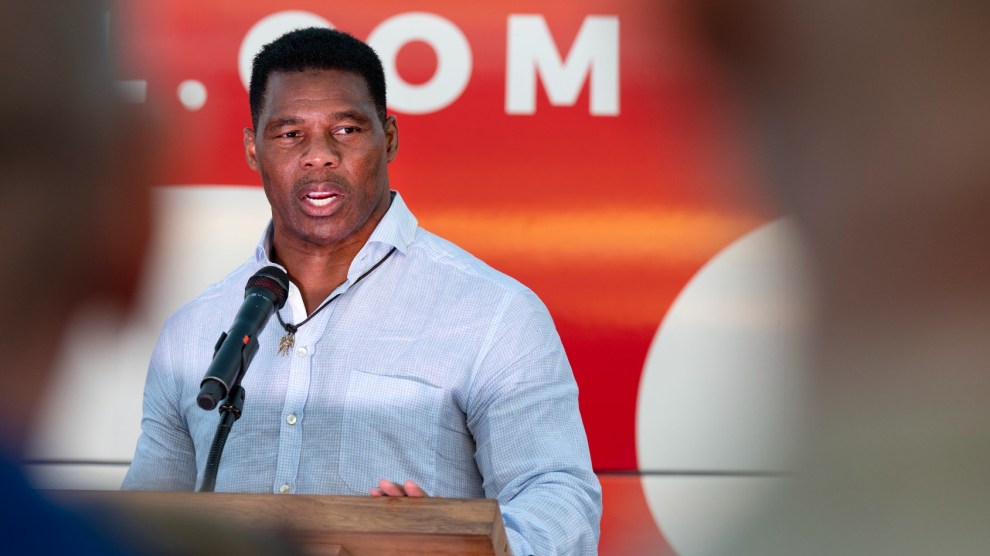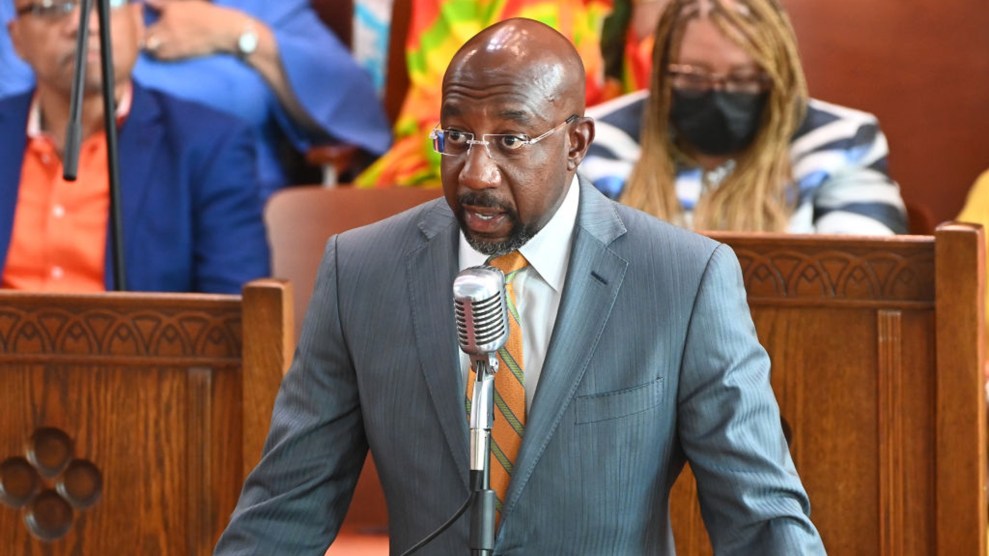
"I secured my vote" stickers photographed on Election Day, November 8th, 2022 in Atlanta, Georgia. Nathan Posner/Anadolu Agency via Getty
Voters in about two dozen Georgia counties began voting today in the Senate runoff between Democratic incumbent Sen. Raphael Warnock and Trump-backed challenger Herschel Walker, despite attempts by the Georgia Republicans to block Saturday voting.
The election will determine whether the Senate remains split 50-50 with Democrats in control, or whether Democrats will take a 51-49 majority that will ease their ability to confirm judges and move legislation through committees.
Originally, Georgia’s Republican secretary of state, Brad Raffensperger, had allowed voting the Saturday after Thanksgiving, then changed his mind and issued guidance prohibiting it. But the Warnock campaign sued, arguing the prohibition was contrary to Georgia law. On Wednesday, the Georgia Supreme Court allowed voting to begin Saturday. Their effort was opposed by state and national Republicans.
Voting began Saturday with long lines across the state as voters decided to take advantage of the extra day of voting. “We had to take them to court just so you could vote today,” Warnock said at a campaign stop Saturday morning.
Early voting opportunities are especially important in a runoff election because there’s little time to vote by mail. Mail ballots must be received by the time the polls close on the date of the runoff election—December 6—making it difficult to request and return a mail ballot in time. Election officials and voting rights groups are therefore urging Georgians to vote in person.
Warnock heads into the runoff with a lead in the polls and a fundraising advantage over Walker, whose campaign was dogged by his history of abusing romantic partners and accusations of pressuring girlfriends to have abortions, among other revelations of turmoil in his personal and family life.

















